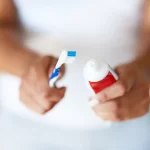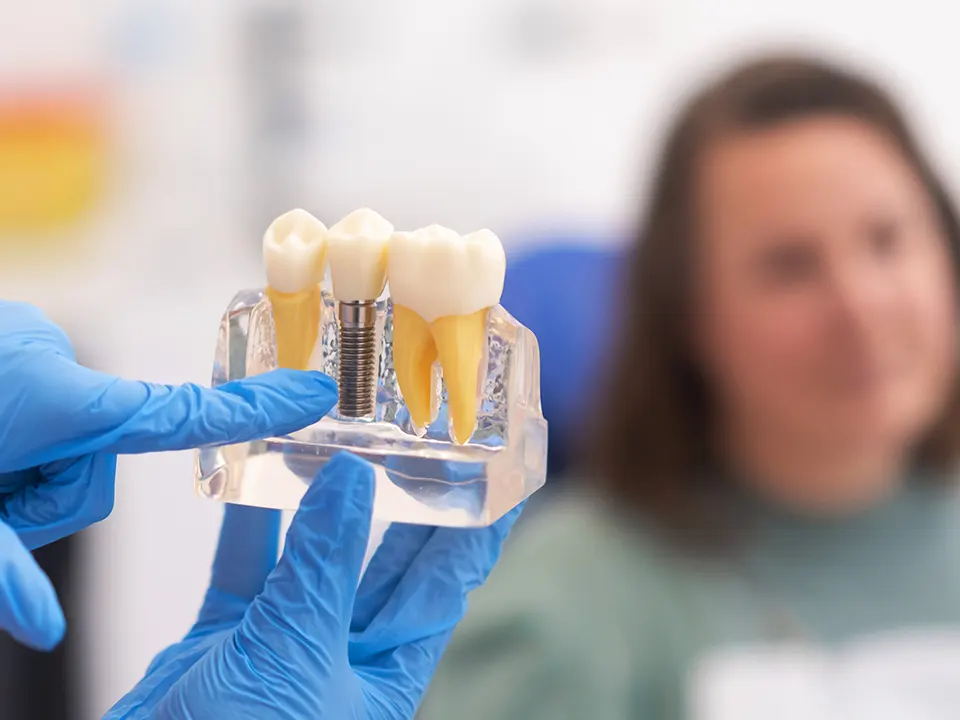
How Regular Dental Cleanings Prevent Bigger Health Issues
November 19, 2024
The Ultimate Guide to Choosing the Best Toothpaste for Your Oral Health
January 17, 2025Dental emergencies can pop up out of nowhere, and when they do, they can bring a lot of pain, panic, and confusion about what to do next. It’s important to know how to handle these situations right away to minimize discomfort, protect your teeth, and avoid bigger issues down the road. In this guide, we’ll walk you through the steps to take during some common dental emergencies and explain when it’s time to call in an emergency dentist.
What Counts as a Dental Emergency?
Not every dental problem is an emergency, so it helps to know the difference. Dental emergencies usually involve things like intense pain, obvious damage to your teeth, or signs of an infection, like swelling or fever. Some common emergencies include:
- Broken or knocked-out teeth
- Toothaches that won’t go away with over-the-counter pain relief
- Lost fillings or crowns
- Cuts or tears to the gums or tongue
On the other hand, issues like minor chips or slight tooth sensitivity can usually wait for your regular dentist appointment.
Common Dental Emergencies and How to Handle Them
Here’s what you should do for a few common dental emergencies:
1. Broken or Chipped Tooth
A broken or chipped tooth can be scary, but don’t panic. To clean the area, start by rinsing your mouth with warm water. If there’s bleeding, press some gauze against it to stop the bleeding. Then, use a cold compress on your cheek to help with pain and swelling.
Try to avoid chewing on that side of your mouth, and save any tooth pieces you can find. You’ll need to see an emergency dentist to determine the next steps—this could involve bonding or even a crown.
2. Knocked-Out Tooth
Time is everything when a tooth gets knocked out. First, find the tooth and pick it up by the crown (the top part you chew with), not the root, to avoid damaging it. Give it a quick rinse with water (but don’t scrub it).
If you can, gently place the tooth back into its socket and hold it there while heading to the dentist. If that’s not possible, store it in saline solution, milk, or your own saliva to keep it moist. Act fast—within 30 minutes is key to saving the tooth.
3. Severe Toothache
A bad toothache can be unbearable, and often, it’s a sign of something deeper—like an infection or cavity. Rinse your mouth with warm saltwater to reduce swelling, and try to gently floss around the tooth to dislodge any food particles.
Don’t put aspirin directly on the gums, though—this can cause burns. While over-the-counter pain meds might help for a little while, you’ll need to seek medical attention to figure out what’s really going on.
4. Lost Filling or Crown
If your filling or crown falls out, it could expose sensitive areas of your tooth, leading to pain or even further damage. For a short-term fix, you can use dental cement (available at most pharmacies) or sugar-free gum to cover the exposed area.
Avoid hard or sticky foods, and visit your dentist for an emergency appointment as soon as possible to restore the filling or crown.
5. Soft Tissue Injuries
Cuts or tears to your gums, lips, or tongue can bleed a lot, but the good news is they can usually be treated at home. Rinse with mild saltwater to clean the wound, and apply pressure with a clean cloth or gauze to stop the bleeding.
A cold compress will help with swelling and pain. If the bleeding doesn’t stop after 10–15 minutes or the injury is deep, seek care from an emergency dentist or visit the nearest urgent care center.

When to Call an Emergency Dentist
It’s important to know when an emergency call is needed. You should contact an emergency dentist if:
- The pain won’t go away, even after trying home remedies
- A tooth gets knocked out
- A broken tooth has exposed nerves or is bleeding heavily
- You notice signs of infection (swelling, fever, bad taste)
- You have trouble breathing or swallowing, which could signal a serious issue
Waiting too long in these situations can lead to bigger problems, including permanent tooth loss or dangerous infections.
Be Prepared for Dental Emergencies
While you can’t prevent every dental emergency, having a plan in place can make things a lot less stressful. It’s a good idea to keep an emergency dental kit on hand with things like:
- Gauze pads for stopping bleeding
- Dental cement for temporary fillings
- Over-the-counter pain relief
- A small container to place a knocked-out tooth
Stay Calm, Act Fast, and Protect Your Smile
Dental emergencies are stressful, but staying calm and knowing what to do can make all the difference. Whether it’s a broken tooth, a severe toothache, or a lost crown, acting fast and contacting an emergency dentist can protect your smile and prevent bigger issues later.
Don’t let a small issue become a big problem—contact our Vernon, BC clinic for expert care. We’re here to restore your comfort and oral health fast.



